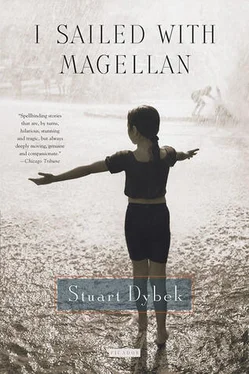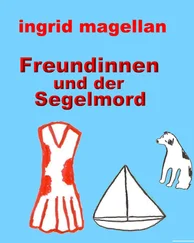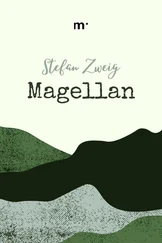Sometimes, on those mornings, Lefty would wonder how his room, its window clouded as if the atmosphere of Venus was pressed against the pane, must have looked from the street. He wondered how it sounded to strangers passing by. Could they hear the vaporizer hissing like a reed instrument missing a reed? Could they hear his gran, who was now sipping Beam straight from the bottle, singing “You Are My Sunshine” in her Polish patois? She loved that song. “Not to be morbid,” she’d say, “but sing ‘Sunshine’ at my funeral.”
Not to be morbid, but when that time came, Lefty played it on the sax, his breath Beamy, played it to heaven, his back braced against the steeple of St. Pius.
She taught Lefty to play the measuring spoons like castanets in accompaniment to her gypsylike singing. She was playing the radiators with a ladle as if they were marimbas. Lefty was up, out of bed, flushed, but feeling great, and in steam that was fading to wisps, he was dancing with his gran. Her girlish curls tossed as around and around the room they whirled, both of them singing, and one or the other dizzily breaking off the dance in order to beat or plunk or blow some instrument they’d just invented: Lefty strumming the egg slicer; Lefty’s Gran oompahing an empty half gallon of Dad’s old-fashioned root beer; Lefty bugling “Sunshine” through the cardboard clarion at the center of a toilet-paper roll; Lefty’s Gran chiming a closet of empty coat hangers; Lefty shake-rattle-and-rolling the silverware drawer; Lefty’s Gran Spike Jonesing the vacuum cleaner; Lefty, surrounded by pots and lids, drum-soloing with wooden spoons; while Lefty’s Gran, conducting with a potato masher, yelled, “Go, Krupa, go!”
How would it look to some stranger who had crept to the window and seen a boy and his gran carrying on as if they’d both been miraculously cured of the croup, doing the hokeypokey face-to-face with the babushka between their teeth?
It would have looked the way it appears to him now, peering in at the memory, like a stranger through a blurred window, straining to hear the beat of pots and the faint, off-key rendition of a vaguely familiar song.
And how would it look to the boy and his gran if they were peering in on him now, watching at the window while an unshaven stranger with a blue note on his shoulder worriedly paces in his dirty underwear, in the dead of night, to the sickly wheeze of a concertina? For a moment, Lefty almost expects to see their faces at the window, though the window is four stories up. He almost feels more like the boy staring in than the unshaven man who is pacing the floor. The boy and his gran seem more real to him than his room in the present. Suddenly, it’s clear to him that memory is the channel by which the past conducts its powerful energy; it’s how the past continues to love.
He moves directly to the suitcase buried in the back of the closet and rummages through it until he finds a scarf. It’s not the old scarf of maroon-and-pea-green plaid anchored with a safety pin; this scarf is navy blue. Nor is it redolent of camphor and Vicks; this scarf smells of mothballs. But it’s woolly and warm and will have to do. He gently wraps the scarf about the concertina, and immediately her labored wheezing softens and is muffled.
He doesn’t own enough pots to constitute a drum set, or to occupy all four burners, but he fills the single pot he has and, with the fanfare of a cymbal crash, he sets it to boil.
He doesn’t know about the concertina, but as the water rumbles into steam, he’s feeling a little better already — less anxious. He’s been worried about the concertina, and his worries have made him feel helpless. He should at least have recognized that something was wrong before it came to this. The concertina has been in a minor mood lately, one that Lefty’s found contagious — wistful, pensive, melancholy, heartsick by turns — a mood that, for lack of perfect pitch, words can’t exactly convey. Even music can only approximate — a G minor from a Chopin nocturne, perhaps; or the D minor of a Schubert quartet, the one called “Death and the Maiden”; or, at times, an airy, disorganized noodling in no discernible key at all, like an orchestra tuning up; or a squeal like a bagpipe with a stomachache; or a drone as if the concertina were dreaming in a scale that only a sitar would find familiar. She’s been in a minor mood that turns a polka into the blues, a jig into a dirge, a tarantella into a requiem. And a tango — how long has it been since he’s heard her slink into the stylized passion of a tango?
Polka, jig, tarantella, tango … wistful, pensive, melancholy, heartsick … menthol, eucalyptus, camphor, lemon. He’s found a mantra on which to meditate, a talismanic spell to chant.
He rifles through the cupboard, but he’s out of honey. Not out, exactly; the fact is that he’s never owned a jar of honey in his life. He opens the arctically austere cell of his refrigerator: a bottle of catsup, a jar of pickles, a couple containers of Chinese takeout that need to be pitched, but no lemon, not even a plastic citrus fruit ripening in there.
Fortunately, he does possess a shot glass and a bottle of whiskey — not Beam — but memory is, at best, approximate, and he bets Old Guckenheimer will do the trick. In honor and imitation of his gran, he belts down a couple quick doses to test its efficacy, and a couple more for the sake of fluids.
There’s that fiery perfume!
Now it’s the concertina’s turn. Even distressed, the concertina looks lovely in the navy blue scarf. It heightens her complexion of mother-of-pearl. Oh, he thinks, little beauty, sweet companion, the one I didn’t realize I was searching for, who almost came to me too late; little squeeze box who taught my fingers to sing, who taught me how to close my eyes and let the music flow.
He loves her pliant fit between his palms, and the way her body stretches as she yawns rhapsodically. He loves to feel the pumping of her breath. It’s like a summer breeze warmed by the bellows of her heart — although bellows has never seemed to him a word suited to her. There’s nothing bellowy about her, no puffed-up sentiments, no martial clamor that might accompany the lockstep or goose step of a march, no anthems for football halftimes, or for saluting flags while windbags swell with their own rhetoric; and though, a few times in her company, he’s heard angelic whispers — an echo of some great medieval organ — no hymns. Hers has always been a song of earth, of olive trees, vineyards, blossoming orchards melodic with bees.
Na zdrowie, little squeeze box.
He watches as, delicately, she inhales the fumes of whiskey-tiny sips starting at do and slowly ascending through re, mi, fa, sol, to a tremulous la-ti. And after the shot glass has been drained repeatedly, he lifts her gently from the bed and they begin to dance to a tune they play together, a tune whose seesaw rhythm is like the panting of lovers. Not a polka, jig, tarantella, or even a tango. They dance to a dance they’ve just invented, an ancient dance they’ve just recalled.
If there are strangers on the street at this late hour, they’ve stopped to listen as if, like dogs, they can cock their ears. They listen, inhaling the cool air, with their heads thrown back against the night. Their breaths plume; their eyes are locked on the faint wisps of dissolving constellations. And though it’s a dark, American city street on which they’ve stopped, they know there isn’t the need to feel afraid because, instead of danger, tonight the air carries music.
Na zdrowie, strangers.
Na zdrowie , music.
Then, in the long diminuendo of a sigh, the concertina folds up quietly, peacefully, exhaling a sweet, whiskey breath, and Lefty lies down on the pillow beside her, covers them both with a bedspread, and closes his eyes.
Читать дальше












